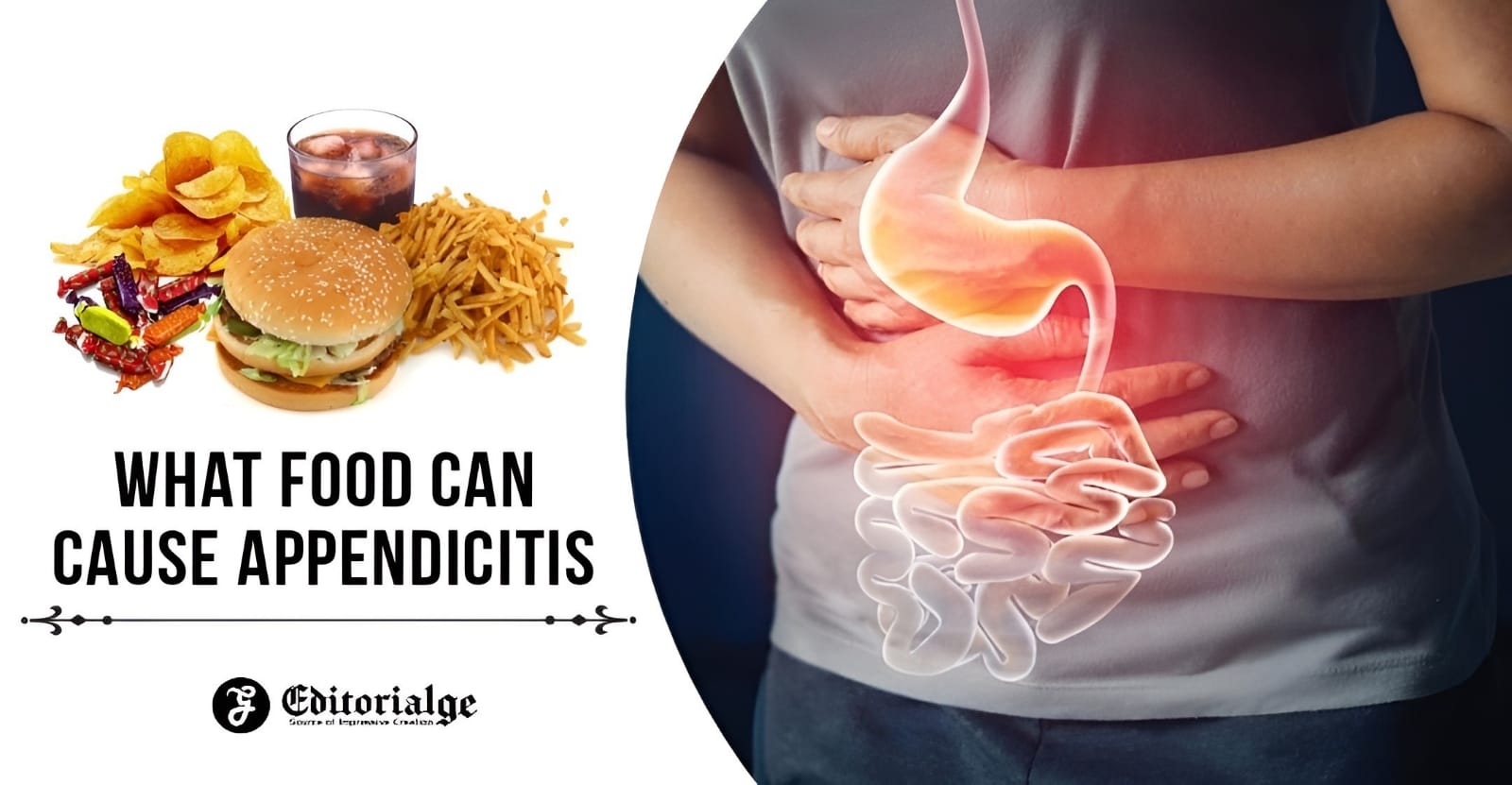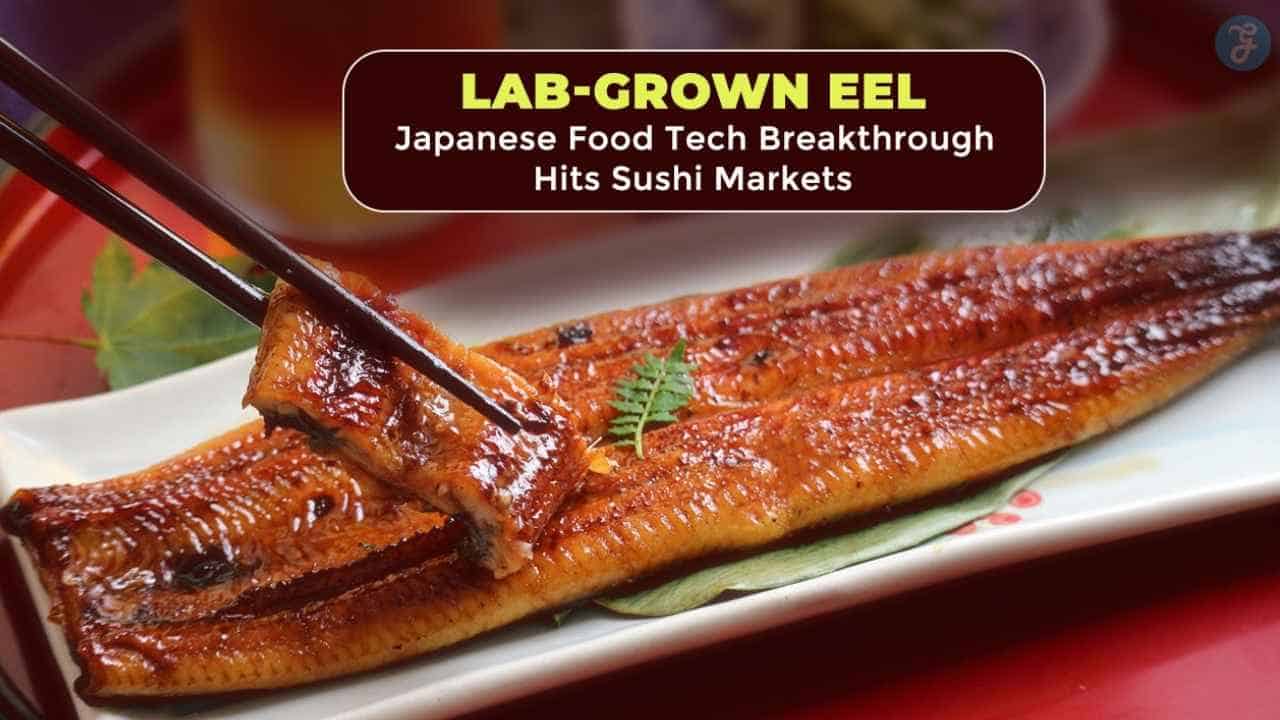Listen to the Podcast:
When meeting someone with appendicitis, most people want to know What Food Can Cause Appendicitis? Early diagnosis is very important, especially for a disease like appendicitis that is hard to treat. Appendicitis is one of the most common reasons for stomach pain, and it is also one of the most common reasons for surgery to be done quickly.
Do you want to know what foods can cause appendicitis? Appendicitis can’t be caused by just one food, but some foods have been linked to a higher risk of getting this condition. In this blog post, we’ll talk about which foods might cause appendicitis and how to lower your risk.
What is Appendicitis?
Pain in the appendix, also called appendicitis, is caused by an inflamed appendix. It is a long-term condition that needs to be treated properly or it could cause a lot of pain. It doesn’t show any warning signs, but it happens when the appendix gets blocked or infected.
When the appendix bursts, it can be very dangerous. I wanted to know why appendicitis happens besides because of bacteria or other infections. After doing some research, I learned that some foods can really hurt your appendix.
Read More: Doxycycline Ruined My Life
Types of Appendicitis
There are two kinds of appendicitis.
Acute Appendicitis: This kind of appendicitis causes a lot of pain in the middle of the stomach. In just a few hours, this pain will be too much to handle.
Subacute Appendicitis: is a type of appendicitis that is marked by mild pain in the abdomen that comes and goes. The pain starts on its own and goes away on its own. At first, this pain isn’t too bad, so doctors don’t know what’s wrong until it becomes Acute Appendicitis.
Symptoms of Appendicitis
- Fever
- Vomiting
- Nausea
- Painful urination
- Swollen belly
- Inability to pass gas
- Pain in the region around the navel
- Loss of appetite
- Constipation or diarrhoea
What Food Can Cause Appendicitis?
Even though eating certain foods probably won’t cause your appendix to burst directly, you should know what foods can cause appendicitis. When you realize that the same foods that cause appendicitis can also make it worse, it’s even more important to know what they are.
-
Seeds
Some studies say that seeds naturally have poisons in them. There are seeds in a lot of fruits and vegetables. If I talk about how oranges are my favourite fruit, I just eat three or four at a time. But I make sure that I never eat seeds for any reason.
Researchers say that these seeds are easy for healthy people to digest. But not everyone has the same experience. Some people with weak immune systems can’t break down these seeds, which can cause their appendices to get blocked.
-
Spicy food
Spicy food can cause inflammation and indigestion, which can be very painful. Appendicitis can happen when another condition, like a stomach infection, is present.
-
Fatty Food
There are no signs that you should stop eating fatty foods that you can look for. Fatty foods are hard to break down. But experts say that you shouldn’t eat too many fatty foods. It can make your health worse or give you indigestion. There isn’t much proof that eating fatty foods directly causes this condition.
If you had surgery for appendicitis because of other problems, you need to be very careful to speed up your recovery. Your stomach has a hard time with foods that are high in fat. When you eat fatty foods, you might also feel sick, throw up, etc.
-
Food that is not properly chewed
If you don’t chew your food well enough, your body can’t easily digest it. This can cause blockages and inflammation, which can lead to appendicitis. Don’t forget to chew your food well before you swallow it.
-
French fries
Fast food like French fries, which is high in fat and has a lot of artificial additives and preservatives, can be bad for your health, especially if you eat it often.
-
Low-fibre foods
Most foods that are low in fibre are also high in sugar and fat. These foods can cause swelling and make it hard to go to the bathroom. People who eat a lot of fibre tend to have better digestion, which means they are 30–50% less likely to get appendicitis.
How to Relieve Pain in The Appendix Naturally?
Pain from your appendix can really make your life hard. It can make you less hungry. It gives you such bad cramps that you can’t even think about food. Some foods that naturally help relieve pain are:
-
Lemons
Lemons are good for your health in general. If you have appendicitis, you may have trouble digesting food, but some home remedies can help you eat more. Lemons have a lot of vitamin C and soluble fiber in them. Studies show that it stops cancer, digestive problems, kidney disease, heart disease, and other diseases.
Mix some lemon juice into a glass of water to make it feel better. It also stops inflammation. It can also help to get rid of swelling and pain. If you add honey to the lemon water, your immune system will get a boost.
-
Buttermilk
People know that buttermilk can help with the pain and other signs of appendicitis. You can feel better if you eat buttermilk every day. You should make buttermilk at home and drink a little bit of it every day.
-
Fenugreek seeds
The fenugreek seeds have compounds that fight free radicals and germs. By using it, extra mucus doesn’t get stored. If you have trouble eating because of stomach pain, fenugreek seeds can help. They can also help your digestion. There are many ways to eat it.
If your appendix bursts and you need surgery right away, you need to pay more attention to what you eat.
-
Mung bean
Not familiar with mung beans? Well, green grams is another name for it. Doctors think it’s one of the best ways to treat appendicitis. People who are having problems with their appendix can eat one tablespoon of mung beans three times a day. It helps to ease the pain and other symptoms of having an appendix.
-
Brown Rice
Brown rice can help your health and digestion in general. If you switch from white rice to brown rice, your health will improve in a clear way.
-
Garlic
Garlic is good for your health in many ways. It has more anti-cancer properties and antioxidants. Garlic helps control your blood sugar and is good for your health in many other ways as well.
Garlic’s anti-inflammatory properties also help reduce appendix pain. You can eat it in different ways, like by cooking with it or putting it in drinks. If you eat two or three cloves of garlic, it can help ease the pain.
-
Vegetable juice
To ease the pain, drink the juice from vegetables like carrots, beets, and cucumbers. Vegetable juices are a healthy way to get the nutrients your body needs and can be very good for you as a whole. You can also mix vegetables like radish, coriander, and spinach to help ease the pain faster and better.
-
Ginger
When my mom makes broth, she adds ginger to change the taste. It has a lot of anti-inflammatory properties that make it good for reducing pain and swelling. People talked about how bad appendix pain is because it is too much to bear.
Ginger tea is good for your health in many ways, including making the pain go away. Ginger tea can be drunk three or two times a day. Pain from the appendix can also lead to indigestion and other symptoms, such as loss of appetite, nausea, vomiting, and so on.
A study has found that there are many ways to treat nausea and vomiting in more than one person.
-
High Fibre Diet
With the least amount of oil and spices, you can make fresh fruits, boiled sprouts, oats, etc. Foods like khichdi, dalia, and upama are healthy and easy to digest.
Diet after Appendix Surgery
Morning cleanser: On an empty stomach, drink lukewarm water with lime juice or wheatgrass juice.
Breakfast ideas: You could have poha, upma, or dalia, broth, or herbal tea for breakfast. On an empty stomach, you can drink vegetable juice that has just been squeezed.
Juices: White pumpkin, bottle gourd, cucumber, amla (Indian gooseberry), and carrot are used to make juices.
Lunch ideas: Soup and steamed vegetables with gluten-free roti, such as bajra, nachni, or rice, are some ideas for lunch. Dishes are made with rice or wheat, like idli, dosa, chillas, etc. Add a probiotic like curds, sauerkraut, or yogurt.
Afternoon: Fruit, a handful of nuts and seeds, and steamed vegetables with a sauce or dressing of your choice.
Dinner: Fresh vegetable salad, sprouts, soup, or broth for dinner.
Lifestyle Choices for Appendicitis Recovery
If you’ve had appendix surgery, I have to say that it wasn’t a good experience at all. Well, your body needs to heal, but you can also do your part by eating well and living in a healthy way.
Get quality sleep: Sleep is an important part of the healing process. Make sure you get enough good sleep so that your appendix heals quickly.
Eat Healthily: After your surgery, don’t eat any processed or fatty foods. It will take months for you to get better. You can ask your doctor when you can eat processed foods again. After the surgery, all you have to do is sip water until the effects of the anaesthesia wear off. Eat normal, bland food so you don’t make your stomach work too hard. You can have grilled chicken, toast, plain rice, and yoghurt.
Drink more Fluids: You can speed up your healing by trying different juices.
Get help from a top gastroenterologist if you have severe pain in the lower right side of your abdomen.
What are The Risk Factors and Complications of Appendicitis?
One of the most common health problems around the world is appendicitis. Anyone can get this disease at any time, but it is rare in children younger than two. Most people who have it are between 10 and 30 years old. In the next few points, we will talk about some of the most common complications and risk factors of appendicitis.
Ruptured appendix: When the appendix bursts, this condition gets worse and causes more problems. In this case, a rupture causes an infection to spread through your abdomen, which means you need surgery right away.
Peritonitis: When your appendix bursts, bacteria fill up the space inside your belly. The inside of your belly gets infected and swollen. It can cause a high fever, trouble breathing, and a lot of pain in the stomach.
Abscess: An infection is caused when your appendix bursts inside your abdomen (abscess). It makes a painful pus pocket around the area. The abscess will be drained by putting a tube through your abdominal wall and into the abscess.
Sepsis: If an abscess breaks open, the infection could spread through your bloodstream to other parts of your body. Even though it happens rarely, sepsis is a serious illness. It can make you feel feverish, confused, sleepy, and short of breath.
Appendicitis Treatment
Appendicitis is treated with surgery called an appendectomy. After appendicitis, the appendix needs to be taken out to avoid more problems. If the appendix has burst, surgery must be done right away. If the cyst hasn’t burst, all the pus that has built up is sucked out with a tube, and then the surgery is done.
There are two ways to take out the appendix through open surgery or through laparoscopy. Laparoscopy is a less invasive method, so the recovery time is shorter. But if appendicitis has caused the appendix to burst, the only choice is open surgery. If appendicitis is caught at a very early stage, it may be possible to treat it with antibiotics and a liquid diet instead of surgery. However, this happens very rarely.
How to Diagnose Appendicitis?
The most common and important sign of appendicitis is a pain in the middle of the stomach. But appendicitis is not always the cause of mild abdominal pain. If the symptom doesn’t go away, you should see a doctor. Some common types of tests are:
- Blood test: if the number of white blood cells goes up, it’s likely because of an infection.
Appendicitis can be found with a CT scan or an ultrasound. - During a physical exam, a doctor may press on the lower right quadrant of the abdomen to check for tenderness that comes back.
- Test your urine to see if you have a urinary tract infection.
The information above is just a guide; please talk to your doctor for more information.
Can Fatty Foods Cause Appendicitis?
There are no signs that you should stop eating fatty foods that you can look for. These foods are hard to break down. But experts say that you shouldn’t eat too many fatty foods. It can make your health worse or give you indigestion. There isn’t much evidence that fatty foods cause this condition directly. Research shows that everyone who has had an appendectomy needs to stay away from foods that are high in fat.
Well, if you had surgery for appendicitis because of other problems, you need to be very careful to speed up your recovery. Your stomach has a hard time with foods that are high in fat. When you eat fatty foods, you might get indigestion or other symptoms like vomiting, nausea, and so on.
Can Spicy Food Cause Appendicitis?
If you don’t get rid of chili seeds, they can get stuck in the intestine for a long time and cause appendicitis. But actually, spicy food is not the main cause of the condition. But spicy foods can give you other problems that can make you feel bad and may look like the first signs of appendicitis.
When you eat spicy foods like chili, hot peppers, or chili sauce, it can upset your stomach. This kind of indigestion can cause severe pain between the sternum and the navel and make you feel sick. Pain can be very uncomfortable, which can make it hard to tell if you have appendicitis or not.
If you think you might have appendicitis, you should see a doctor right away. If you don’t get help from a doctor, appendicitis won’t go away on its own. If you often get painful digestive problems after eating spicy food, you should limit how much and how often you eat these kinds of foods.
What to Expect During an Appendectomy?
Antibiotics will be given to you to fight infection before your appendix is taken out. General anaesthesia is used during an appendectomy to put you to sleep so that the surgery can be done.
Your appendix is taken out through a 4-inch cut or with a tool called a laparoscope (a thin telescope-like tool that lets them see inside your belly). Laparoscopy is the name for this method. If you have peritonitis, a surgeon will clean your belly and drain the pus.
After surgery, you can get up and move around after 12 hours. In 2 to 3 weeks, you should be able to go back to your normal routine. If you had a laparoscopy, you will get better more quickly.
Conclusion
In the end, it’s important to know that eating certain foods can make the chance of getting appendicitis higher. Appendicitis is more likely to happen if you eat spicy food, foods with a lot of fiber, fruits, and vegetables with seeds, processed, fried, and junk foods, alcohol, caffeine, and sugar. Soda, on the other hand, doesn’t seem to raise the risk of appendicitis. If you have any signs of appendicitis, you should see a doctor right away so that you don’t have to deal with any complications.
Frequently Asked Questions (FAQs)
Can appendicitis be caused by junk food?
One could think that eating a lot of sweets and not enough fiber can cause constipation and make you more likely to get sick, which can lead to appendicitis.
Who is most at risk of appendicitis?
Who tends to get appendicitis more often? Appendicitis happens a little more often in men than in women. People in their teens and 20s are more likely to get it, but it can happen to anyone, even older adults.
Is milk good for the appendix?
A full-milk diet is also good for someone with appendicitis, though it needs to be seen if he or she can handle it well. Lunch was steamed vegetables and buttermilk.
What foods are hard on the appendix?
Foods that are high in fat can make your appendicitis worse. Sugar: Sugar from sources other than fruits can be bad for your health. Refined sugar can give you diarrhea and make your appendicitis worse. Avoid foods like candy and chocolate, and cut down on the amount of sugar you eat every day.
Which fruits are best for appendix patients?
fruits that come in boxes or cans. Carrot, ladyfinger, bottle gourd, snake gourd, beetroot, cucumber, potatoes, capsicum, cauliflower, squashes, green leafy vegetables, kale, spinach, cabbage, and beetroot. Beans, broccoli, vegetables with a cruciform shape, and pre-packaged vegetables. Bread, barley, oats, white rice, rawa porridge, and wheat porridge.
Can we drink water in an appendix?
Unless your doctor says it’s okay, don’t eat or drink. If you have to have surgery, it’s best to be hungry. If you’re thirsty, you can use water to rinse your mouth.
Can eggs cause appendicitis?
Granulomatous schistosomal acute appendicitis is an immune reaction to newly laid eggs that causes tissue death and an increase in white blood cells called eosinophils. It can happen in the early stage of infection.




































